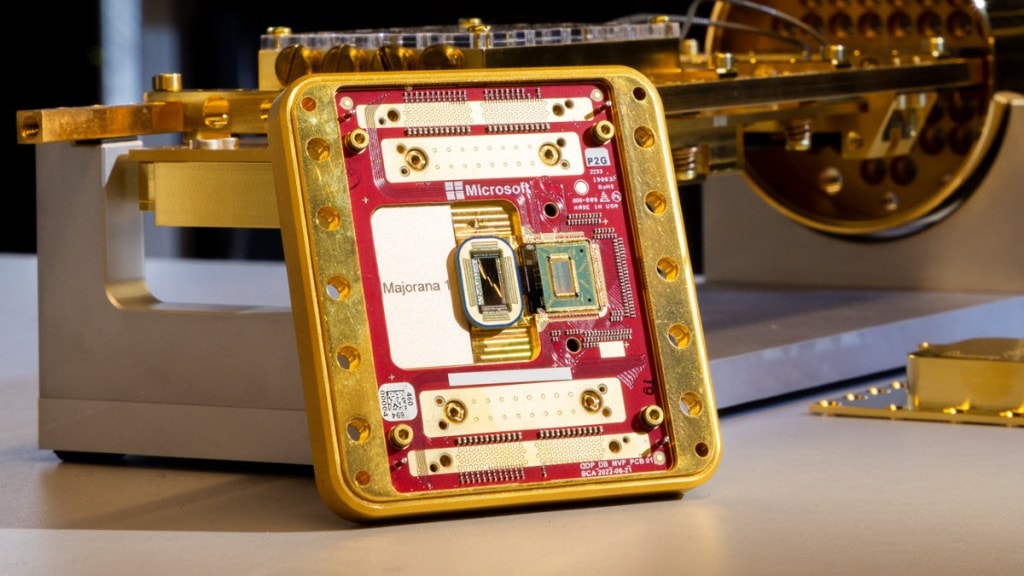Microsoft launched Majorana 1, the company’s first quantum computing chip that will help quantum computers solve problems faster. The new Majorana 1 is designed to make quantum computing more practical, faster and reliable. Quantum computers process information differently from traditional computers, using qubits instead of regular bits. This allows them to solve complex problems much faster, but qubits are extremely fragile and prone to errors.
Majorana 1 leverages a new material called a topoconductor or a topological superconductor, which helps create a special kind of qubit that is more stable and less prone to losing information. This could finally allow quantum computers to scale up to millions of qubits and help solve real-world problems like designing better medicines, reducing pollution, and creating materials that can repair themselves.
Why quantum computing matters
Today’s computers, no matter how advanced, process information using binary bits – either a 0 or a 1. This system works well for many applications but has limitations when it comes to solving complex problems. Quantum computers, however, use qubits, which can exist in multiple states at once. This allows them to perform many calculations simultaneously, making them exponentially more powerful for certain types of problems.
Enter the Majorana 1- a more stable qubit
Microsoft’s Majorana 1 chip solves this problem by using a new kind of qubit based on Majorana particles. These exotic quantum particles help protect information from errors, making the approach more stable than the traditional quantum computers.
To create these qubits, Microsoft developed topoconductors- a type of material which can observe and control Majorana particles to “produce more reliable and scalable qubits.” These serve as the foundation for a quantum chip that could finally scale to the one million qubits needed for real-world applications.
“We took a step back and said ‘OK, let’s invent the transistor for the quantum age. What properties does it need to have?’” said Chetan Nayak, a Microsoft researcher. “And that’s really how we got here – it’s the particular combination, the quality and the important details in our new materials stack that have enabled a new kind of qubit and ultimately our entire architecture.”
Microsoft’s research has already received validation from DARPA, the U.S. defense agency responsible for funding cutting-edge technology projects. The company is now one of two finalists in DARPA’s US2QC program, which aims to develop the first quantum computer capable of solving real-world problems at large scale.








